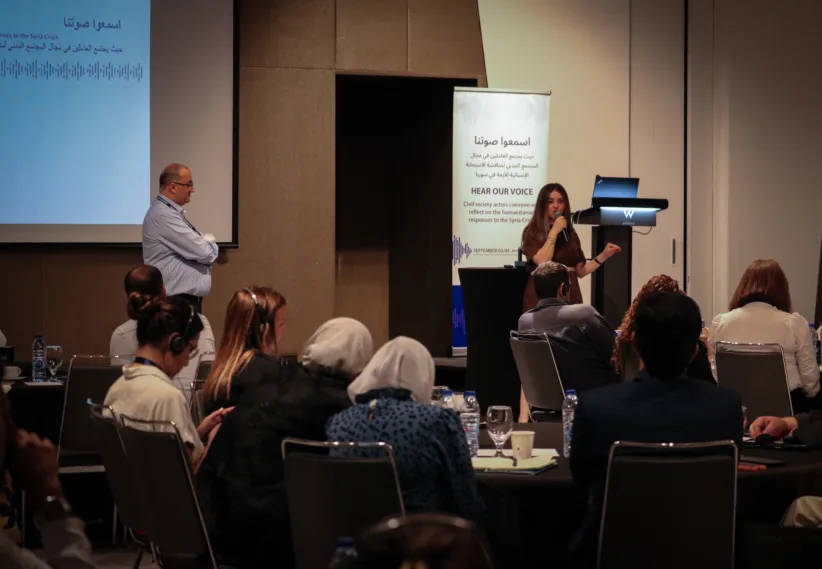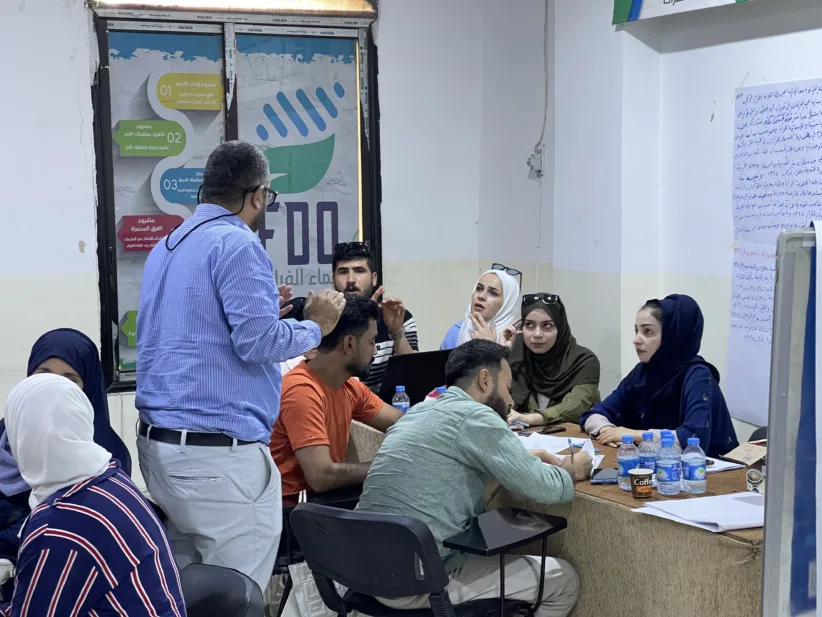A Quiet Revolution for Democracy Taking Shape in Syria
When ASO, a Syrian civil society organisation, first convened a modest meeting in Ar-Raqqa—a governorate liberated from ISIS in 2017—there was little to suggest history was being made. No flags, no cameras, just plastic chairs, dusty light, and a handful of activists assembled in earnest silence.. “We used to be spoken for, now we are speaking for ourselves.” says a senior staff working with ASO.

For decades, governance in Syria was centralized, closed, and imposed from above, and people were largely excluded from decisions affecting their lives. Decisions about people’s futures especially in cities like Raqqa, Hassakah and Dier-ez-Zor were made behind closed doors, with no room for public input or debate. The brutal civil war and the loosening grip of authoritarian rule, along with the collapse of state institutions, left a democratic vacuum, one that local communities seized as an opportunity to start building change from the ground up.
The Civil Society and People’s Participation in Decision-Making in Syria Programme, funded by the Swedish International Development Agency (SIDA), through Norwegian People’s Aid (NPA), inspired ASO and dozens of grassroots organisations in Northeast Syria (NES) to form a broad coalition, establishing the CSOs Platform which now encompassing more than 168 local CSOs and CBOs. What began as informal listening sessions has grown into a coordinated movement for civic participation, inclusive governance, and local ownership of Syria’s future. The platform has trained over 200 civic actors including women, youth, and minority voices in policy dialogue, negotiation, advocacy, leadership, and governance. What started as notes on flipcharts are now policy briefs submitted to international institutions in Geneva and Brussels. Two members of the platform now sit in the Geneva Civil Society Support Room, ensuring that Syrian voices, especially from the northeast, are not just present but heard.
We don’t wait for invitations, we show up, prepared with evidence, voices, and votes, says a platform leader.
The impact of this transformation stretches far beyond policy papers. Women who once hesitated to speak in public meetings are now convening discussions and leading advocacy campaigns themselves. Several draft constitutional debates now carry the imprint of community recommendations collected from villages across the northeast. What began as listening sessions has evolved into formal representation in peace processes. A year after implementation, there is also a broader sense of something shifting. For decades, Syrians endured being sidelined while decisions about their lives were made elsewhere. Today, through civil society voices, the idea of a new Syria under transition one where communities themselves shape the rules of governance feels within reach.
Youth leading in Raqqa

In Ar-Raqqa, a city formerly ruled by ISIS and remembered only for fear, young people are reclaiming their place in public life. With training and mentoring in civic participation, good governance, dialogue facilitation, mobilisation and policy influencing from NPA’s partner FDO, 130 young members, including displaced and returnee youth, have built a Youth Political Platform. They have facilitated more than 250 inter-community dialogues and hosted 22 public forums and conferences with local authorities, powerholders, and tribal leaders. They have also developed community-driven recommendations on education, public services, health, women’s rights, and reintegration. Their voices helped deliver three municipal policy changes, including a simplified process for returnee children to enroll in schools. For many, the shift is deeply personal.
Where ISIS once used fear, we now use our voices, says one Youth Platform member.
It is a statement of survival, but also of vision, a belief that young people can help shape a more inclusive Syria, rather than inherit its ruins. Further northwest in Idlib, DOOR another CSO partner and its Youth of Change Network (YCN) have mobilised more than 500 young advocates across 23 committees and 26 community-based organisations. They have tackled issues from digital literacy to gender equity in schools and even launched a digital platform connecting 800 citizens directly to local authorities. Their lobbying contributed to amendments in four municipal by-laws, including provisions for youth budgets. The change is not just statistical, it is cultural. As one young member in Idlib put it: “Democracy doesn’t start in parliaments. It starts when young people demand to be seen and heard.” For many, that is what transition looks like: not waiting for a distant capital to deliver change but living it at the community level.
From Raqqa to young women in Deir-ez-Zor governorate and youth activists in Idlib, these stories collectively reflect a quiet revolution in Syria’s civic life. With NPA’s model of working through partners, with funding from SIDA, Syrians are reclaiming agency in spaces where once only silence reigned. It is fragile, certainly. Transition in Syria may take long, it may be uneven, and uncertain. But for the first time in many years, there is a pattern of participation taking shape, ordinary people building new habits of dialogue, representation, and accountability that could one day serve as the foundation for a democratic Syria.
